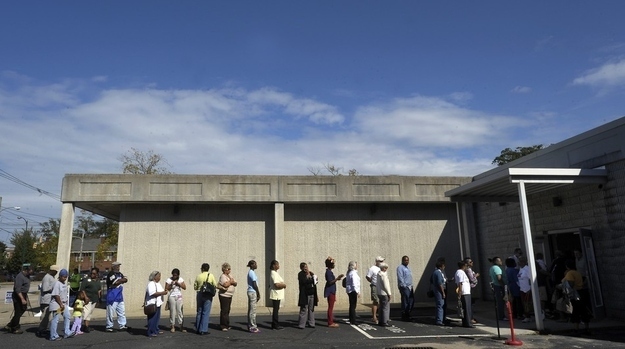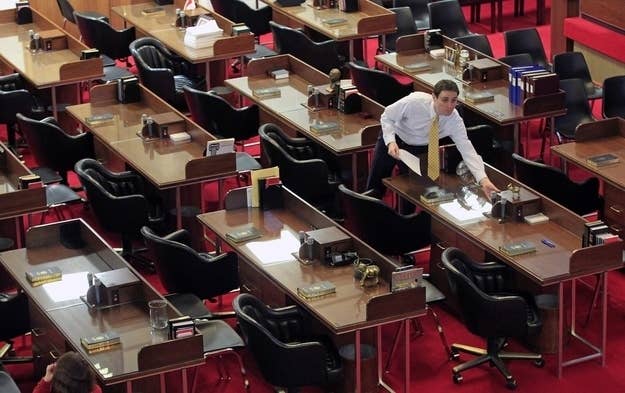
On Thursday, North Carolina legislators passed a revised voter ID bill, supported by Republicans who control the state Legislature, that would will place sweeping new restrictions on when, where, and how citizens can vote.
Because of past evidence of discrimination against African-Americans, North Carolina was among the states previously required by Section 5 of the 1965 Voting Rights Act to get federal approval before voting changes could be put into place. The Supreme Court struck down a key provision of the Act in June, and North Carolina lawmakers immediately started measures to tighten rules for voter identification and voting times.
Republicans claim that the restrictions in House Bill 589, named "VIVA," are necessary to combat "rampant" and "undetected" voter fraud. "People need to have confidence in the fact that everyone only votes once, and that their vote matters, and establish integrity in the electoral process," state Sen. Bob Rucho told the Associated Press. "I would hope we can pass this bill and re-establish a level of integrity and confidence in the electoral system."
Democrats and voting rights groups argued that there is little evidence of such widespread voter fraud. The North Carolina Board of Elections reports that only 121 alleged cases of voter fraud were reported during the 2012 general election — approximately 0.00174% of the 6.9 million votes cast.
"House Bill 589 attacks democracy at its core," the American Civil Liberties Union of North Carolina said in a statement. "It is clearly designed to make it more difficult for thousands of eligible voters to register and cast a ballot... In a session marked by attacks on North Carolinians' most basic liberties, H.B. 589 is one of the most shameful and severe."
The Republican-dominated House approved the measure late Thursday night. It passed the state's Senate a day earlier.
These are some of the many changes that will be put into place when North Carolinians head to the polls:
1. The early voting period will be shortened by a week, from 17 days to 10. Same-day registration during the early voting period will be eliminated.
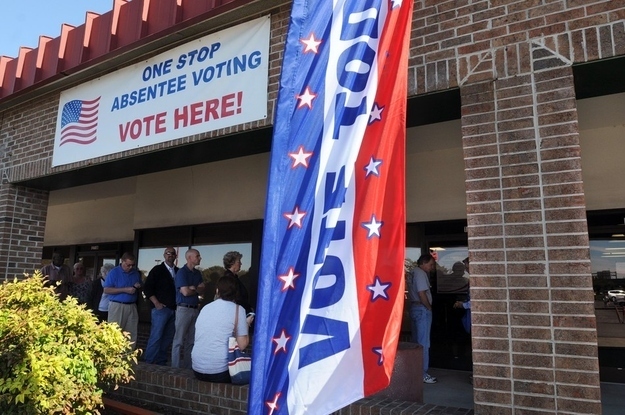
2. Straight-party ticket voting will be eliminated.
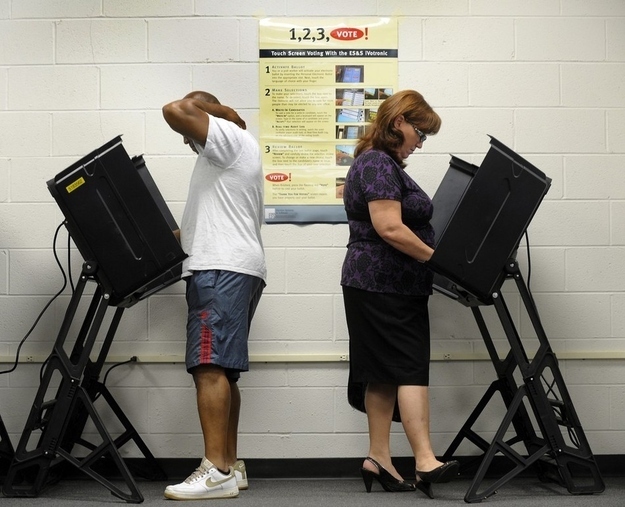
3. Political party chairpersons will be allowed to designate up to 12 poll "observers" to monitor polling locations in order to ferret out voter fraud. Democracy North Carolina refers to these observers as "vigilantes."

4. Sixteen- and 17-year-olds will no longer be allowed to pre-register to vote.
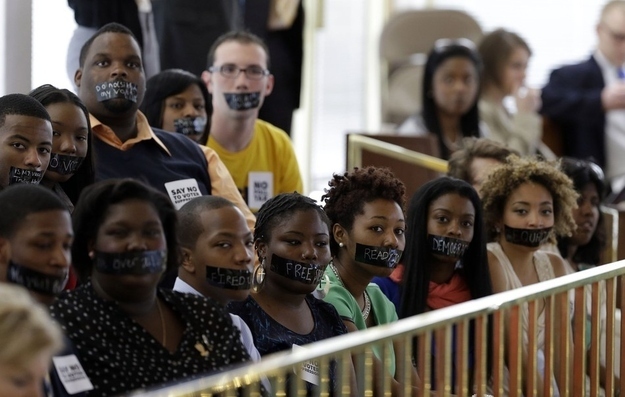
5. College and local government IDs will not longer be acceptable forms of identification to vote.
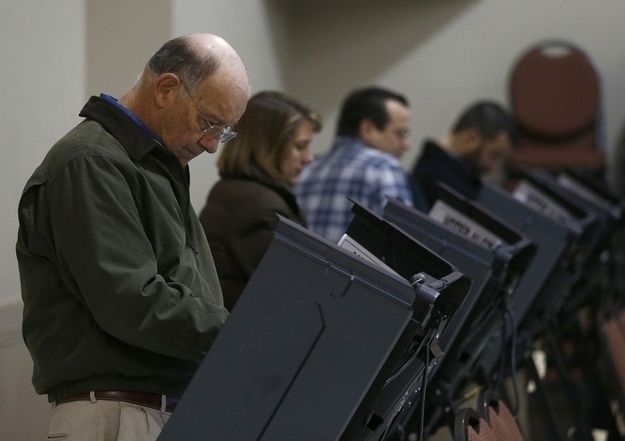
6. Out-of-precinct voting will no longer be allowed.
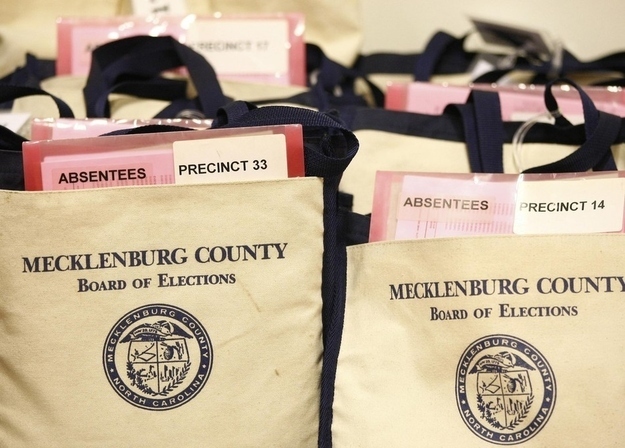
7. New restrictions will make it much more difficult to set up satellite polling stations, which will make it harder for elderly and disabled North Carolinians to vote.
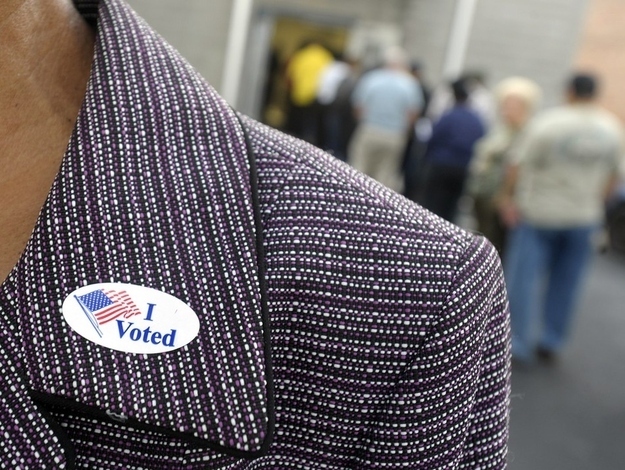
A county board of elections by unanimous vote may, upon approval of a request submitted in writing to the State Board of Elections, establish a plan whereby elderly or disabled voters in a precinct may vote at designated sites within the precinct other than the regular voting place for that precinct. Any approval under this section is only effective for one year and shall be annually reviewed for extension.
8. Voter registration drives in which those collecting new registrations are paid will be banned.
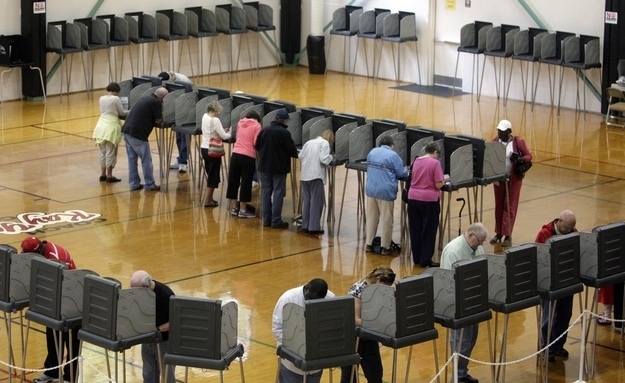
G.S. 163-274(a) is amended by adding a new subdivision to read:
For any person to be compensated based on the number of forms submitted for assisting persons in registering to vote unless that person is conducting voter registration for a governmental agency as required by this Chapter or by federal law."
9. Counties will no longer be able to extend voting hours due to long lines or other extraordinary circumstances.
